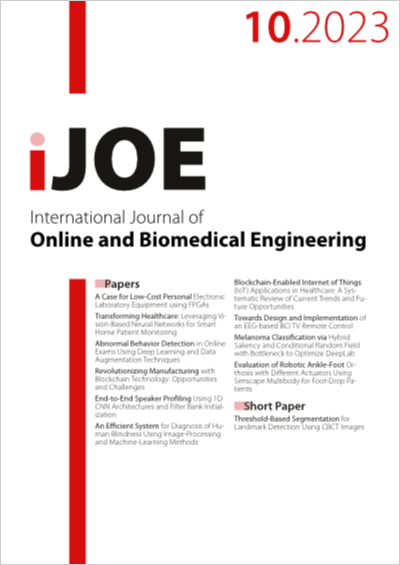A Case for Low-Cost Personal Electronic Laboratory Equipment using FPGAs
DOI:
https://doi.org/10.3991/ijoe.v19i10.39487Keywords:
FPGA, Reconfigurable Hardware, low-cost, laboratory, programmableAbstract
The field of reconfigurable computing is gaining a lot of following, and several use cases have been developed for it. At the centre of reconfigurable computing is the field programmable gate array (FPGA) due to its computational speed and versatility. The goal of the work reported here was to show that a single FPGA board paired with a computer monitor can be used as the sole laboratory equipment in a cash-strapped educational institution or by an individual. A Terasic DE1-SoC board was programmed as an oscilloscope, and digital multimeter. In keeping with the low-cost theme of this work, no external signal conditioning circuit was used and the on-board LTC2308 ADC was used for signal acquisition. At frequencies below 15 kHz, the voltage measurements of the developed FPGA lab instrument had a mean error of 58 mV. The voltage measurement errors, however, increased with an increase in frequency and the errors were significant when the signal frequencies exceeded 100 kHz. In terms of the use of the FPGA to replace multiple lab instruments, 13% of the DSPs on the FPGA were used for the implementation and 80% of the Adaptive logic modules. We therefore demonstrate that with $300 dollars, multiple pieces of laboratory equipment can be replaced by a single FPGA board and a monitor.
Downloads
Published
How to Cite
Issue
Section
License
Copyright (c) 2023 Timothy Olanrewaju Adegbite, Olawale Babatunde Akinwale

This work is licensed under a Creative Commons Attribution 4.0 International License.



